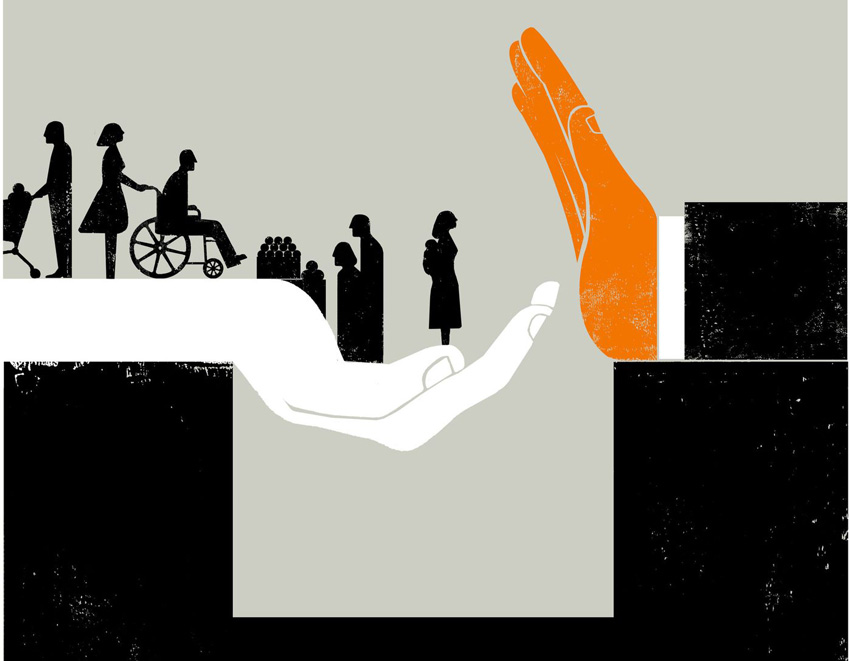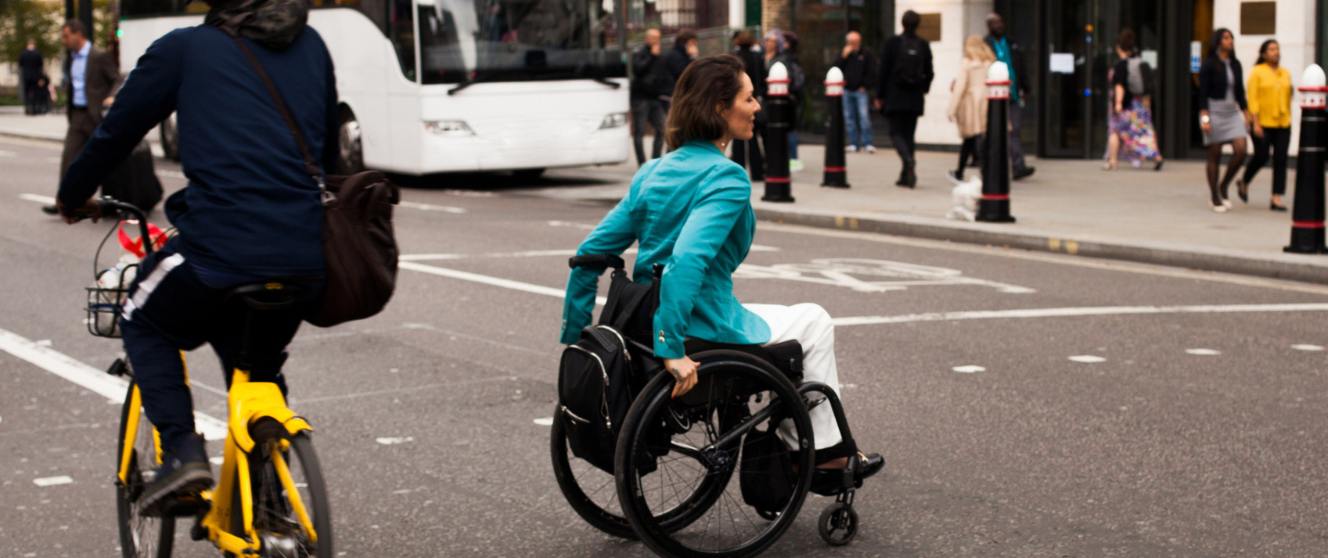
August 14, 2019

On Monday, August 12, the Department of Homeland Security (DHS) released its final “Public Charge” regulations that will become official when published in the Federal Register which is expected to happen on Wednesday, August 14. The new rule expands the conditions under which DHS can exclude more applicants for U.S. entry or green card status, including people with disabilities.
When DHS released its draft public charge rule last fall, the agency received over 260,000 comments, most opposing the changes in keeping with DREDF’s own comments. In response to concerns that the rule would harm immigrants with disabilities, or that any immigrant could get in an accident, develop a chronic condition, have a disabled child, could need temporary help with housing, food or healthcare at any time, DHS admitted that the new rule could have an “outsized impact” on applicants with disabilities, but noted “it did not codify this final rule to discriminate against aliens based on age, race, gender, income, health, and social status . . . [r]ather, this rule is intended to better ensure that aliens subject to this rule are self-sufficient.”
DHS further tried to excuse itself by pointing out that “Congress did not specifically provide an exemption for individuals with disabilities.” The agency then provided case histories from 1911 detailing how disability has always been a consideration when making immigration decisions. Most telling, perhaps, were examples of “three impoverished immigrants” who were denied entry because one “had a ‘rudimentary’ right hand affecting his ability to earn a living, the second due to poor appearance and ‘stammering’ and the third because he was very small for his age.”
That’s right, DHS used century old examples to illustrate how disabled immigrants could not be “self-sufficient.”
Regressive politics has seldom been so blatant.
The final rule:
- Expands categories of benefits that will be considered when assessing for public charge, from mostly cash benefits like Supplemental Security Income (SSI) which are currently counted to also include non-emergency Medicaid, Supplemental Nutrition Assistance Program (SNAP), and Section 8 housing vouchers and rental assistance;
- Excludes Medicaid benefits from being counted toward public charge when the benefits are received by children under 21 and by pregnant women (including 60 days of post-partum care), as well as for services funded by Medicaid under the Individuals with Education Act (IDEA) or delivered in a school setting;
- Excludes Medicaid services received by certain categories of immigrants, such as refugees, asylum seekers and certain other at-risk populations;
- Keeps complex calculations for the threshold when benefits will be included towards public charge. With non-monetary assistance, an individual will be considered a “public charge” and their green card application will likely be denied if the individual receives more than 12 months of public benefits during a 36-month period, counted in the aggregate. That means if someone receives both SNAP and Medicaid in one month, under the new rules it will count as receiving two months of benefits;
- Only considers public benefits received directly by an individual for that person’s own benefit or as a listed beneficiary of the public benefit. This means, for instance, that even if a green card applicant has a spouse or parent in their household who receives Medicaid, it should not be held against the person applying;
- Is not retroactive. Green card applicants, who receive benefits under the newly added categories before October 15, 2019, when this rule takes effect, will not have that counted against them when they apply for entrance or a green card.
According to The Washington Post, the following factors will weigh against applicants negatively:
- Having a household income less than 125 percent of the federal poverty level.
- Having “a medical condition” that will interfere with work or school.
- Lacking enough money to cover any “reasonably foreseeable medical costs” related to the condition.
- Having “financial liabilities.”
- Having a low credit score.
- Lacking a college degree.
- Lacking English language skills “sufficient to enter the job market.”
- Having a sponsor “unlikely” to provide financial support.
According to DHS, these factors are likely to favor an applicant:
- Having private, unsubsidized health insurance.
- Having income at least 250 percent of the federal poverty level.
The beating heart of U.S. immigration policy has always been that the circumstances from which one emerges need not determine where a person will end up. People from all over the world–including those with disabilities–have immigrated to the United States to fulfil this promise. With this final public charge rule, the Trump administration is saying, in essence, “if you are poor, have a disability, are older, may need help with medical care or food or housing for a period, or come from a place where you can’t survive, you are a lost cause.”
“Give me your tired and your poor who can stand on their own two feet and who will not become a public charge,” Ken Cuccinelli, acting director of U.S. Citizenship and Immigration Services, said August 13 on NPR’s Morning Edition, twisting the words of poet Emma Lazarus that have been enshrined at the base of the Statue of Liberty since 1903.
Intentional or not, Cuccinelli’s ableist metaphor and the sentiments expressed by the Trump administration speak volumes nonetheless. People with disabilities know what it is like to be counted out. We know the exclusion built into the “bootstrap” mentality that they evoke all too well. The disability community, whether citizens or not, also understands that the Trump administration is preying on fear, and peddling a century’s old lie designed to divide and conquer.
We refuse to take the bait.
Immigration issues are disability issues and disability issues are immigration issues. This was true in 1903 and it remains true today. DREDF steadfastly opposes the “public charge” regulation passed by the Trump administration.
Please urge your elected officials to halt implementation of the new public charge rule, and support advocates’ efforts to fight the new rule in the courts.
We’ll keep you updated.
Read DREDF’s 2018 Comments on last year’s draft Public Charge Rule.

